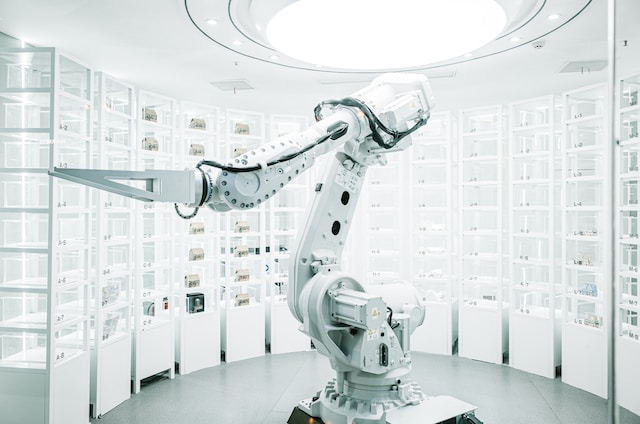Artificial intelligence (AI) continues to drive technological advancements, transforming various industries and shaping our daily lives. With each passing day, new ideas emerge that push the boundaries of what AI can achieve. In this article, we’ll dive into some of the latest developments in artificial intelligence, highlight their potential impact on society, and shed some light on the future of this fast-growing field.
Deep learning and neural networks
Deep learning, a subfield of AI, has seen significant progress recently. Neural networks inspired by the human brain form the basis of deep learning algorithms. Researchers are constantly working to improve neural networks to improve their efficiency and accuracy.
An exciting development is using deep learning in natural language processing (NLP). Language models such as OpenAI GPT have demonstrated exceptional language generation capabilities that enable tasks such as writing readable articles, answering questions, and engaging in meaningful conversations.
Explainable AI
As AI systems become more complex and ubiquitous, the demand for transparency and interpretability grows. Explainable Artificial Intelligence (XAI) aims to bridge the gap between complex AI algorithms and human understanding and provide insight into the decision-making process of AI models.
Researchers are developing methods to explain the reasoning behind AI predictions, making it easier for users to trust and understand AI-driven decisions. XAI not only increases accountability but also enables wider adoption of AI systems across critical domains such as healthcare and finance.
Strength training and robotics
Reinforcement learning is an artificial intelligence technique that allows an agent to learn optimal behavior through interaction with the environment. Combining reinforcement learning with robotics opens up exciting possibilities for autonomous systems capable of learning and adapting to real-world scenarios.
Researchers have made significant progress in developing robots capable of performing complex tasks with limited prior knowledge. From robotic manipulation to autonomous vehicles, reinforcement learning algorithms are transforming the capabilities of robots, leading to increased efficiency and adaptability.
AI in healthcare
Artificial intelligence has enormous potential to revolutionize healthcare by improving diagnostics, personalized medicine, and patient care. Recent breakthroughs in medical imaging analysis have shown promising results in the early detection and diagnosis of diseases such as cancer.
AI-powered chatbots and virtual assistants are also being developed to assist healthcare professionals, provide patients with quick and accurate information, and aid the triage process. Additionally, AI-driven predictive analytics models help hospitals optimize resource allocation and improve patient outcomes.
Ethical Considerations and Mitigation of Prejudice
As AI systems become more ubiquitous, ethical considerations and biases are critical to address. Researchers are actively working to mitigate bias in AI algorithms and ensure fair and equitable outcomes for all users.
Efforts are underway to develop frameworks for responsible AI with a focus on transparency, accountability, and ethical decision-making. By considering multiple perspectives and involving interdisciplinary teams, the AI community strives to build systems that align with societal values and promote inclusivity.
Conclusion
The field of artificial intelligence is constantly expanding and innovating, introducing disruptive concepts that are shaping the way we live and work. From deep learning and explainable artificial intelligence to empowering learning and healthcare applications, the latest developments in artificial intelligence hold enormous promise for solving complex problems and enhancing human capabilities.
While celebrating these advances, it is essential to prioritize ethical considerations and ensure that AI technologies are developed and deployed responsibly. As AI continues to evolve, it will be critical to strike a balance between progress and societal well-being, ultimately creating a future where AI empowers and benefits humanity.








